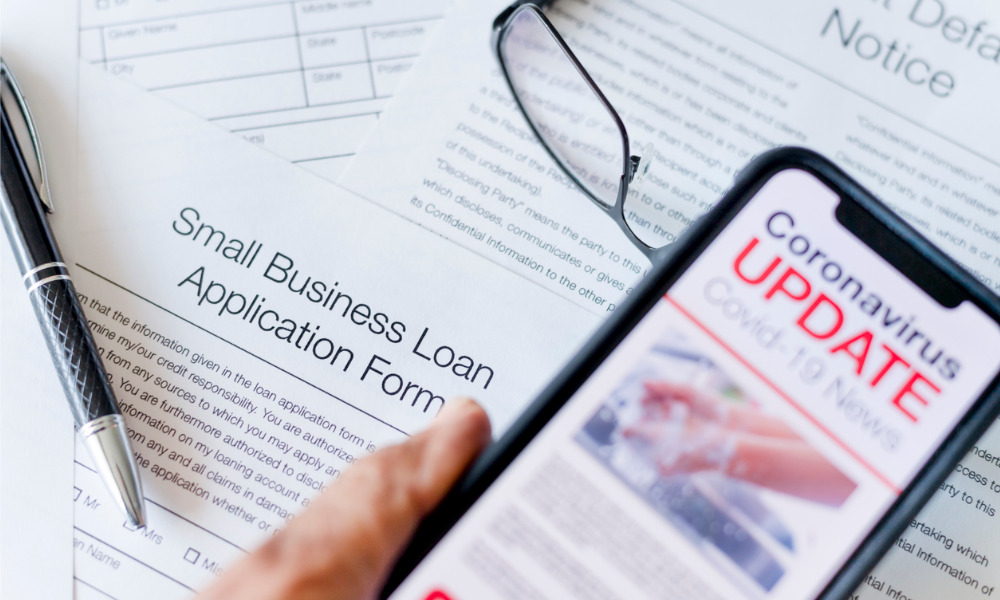Independent business federation says thousands of CEBA loan recipients now being told they are ineligible

The Canadian Federation of Independent Business (CFIB) is making an urgent plea for thousands of small businesses that received Canada Emergency Business Account (CEBA) loans in good faith but are now considered ineligible.
In a statement, the national business association called on the federal government to ensure that such business owners are treated like other qualified applicants who got keep the $10–20,000 forgivable portion of the loan.
Corinne Pohlmann, senior vice-president of National Affairs and CFIB, stated: "The CEBA program was incredibly helpful to over 900,000 small businesses as it provided an interest free $40-$60,000 loan to help them through the pandemic. One of the most important features was that $10-$20,000 of the loan would be forgiven by government upon repayment of the balance, allowing the business to retire a portion of the debt many were forced to take on to survive lockdowns and restrictions."
Read more: Digging into CEBA's tax implications
But now, thousands of small businesses are now receiving calls from their financial institutions. According to Pohlmann, those business owners are now deemed ineligible for the loans in the first place, and are being asked to repay their CEBA loan in full by the end of 2023.
"While businesses were given some time to provide more information to qualify, it feels like government has forgotten that many were fighting every day for the very survival of their businesses during lockdowns and restrictions,” said CFIB President Dan Kelly. “Making businesses who applied and received funds repay the full amount will push some over the edge given the massive debt load many accumulated due to the pandemic,"
The CFIB is urging the government to permit any business that got a CEBA loan to keep the forgiving portion upon repayment of the balance, excluding instances of flagrant fraud.
Government must, at the very least, make sure that there is a new procedure for enterprises to requalify and to handle situations of exceptional difficulty.
Small businesses have had to contend with increased input costs, inflation, labor shortages, and supply chain difficulties since the COVID pandemic crisis receded.
According to the most recent data on CFIB's Small Business Recovery Dashboard, 64% of small firms are carrying pandemic debt with an average balance of $144,000, and 58% of them are still earning less than they normally would.
Read more: Seven in 10 small business owners expect pain from latest rate increase
Government programs were modified throughout the epidemic to match how the pandemic was evolving. CFIB said that by enabling all CEBA recipients to return the loan by the end of 2023 rather than the previous deadline of December 31, 2022, the government showed that it had heeded earlier its earlier advice.
CFIB called on the government to carry on with its previous approach by ensuring that everyone who obtained a CEBA loan in good faith but is now ruled ineligible keeps the forgiven amount, as long as they pay back the loan by the end of 2023.
The association also requested that least 50% of the principal on CEBA loans should be considered forgivable, and the repayment deadline for CEBA loans be postponed an additional year to December 2024.



